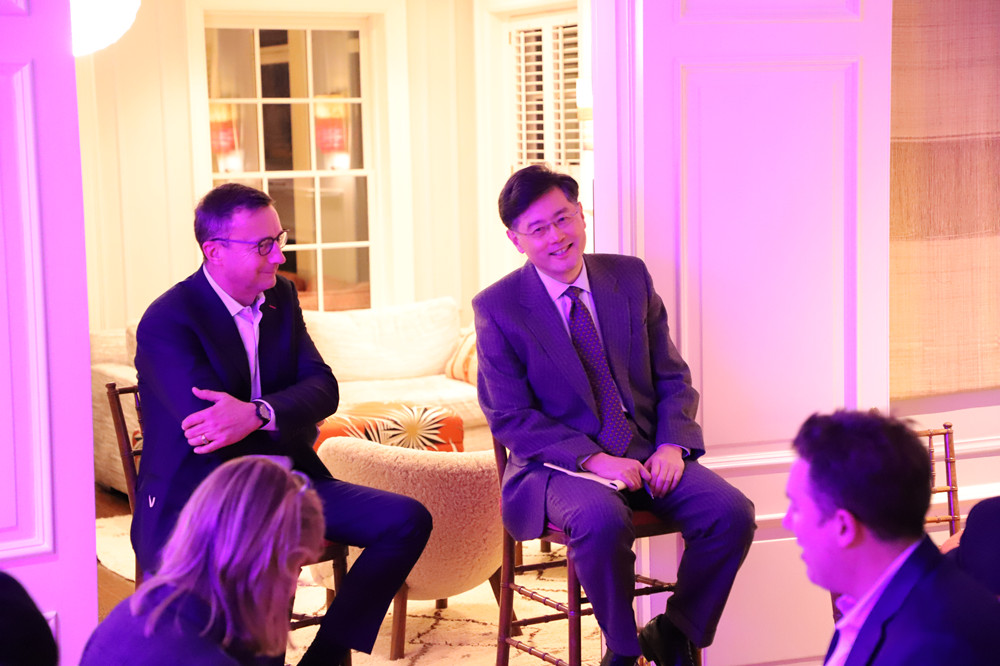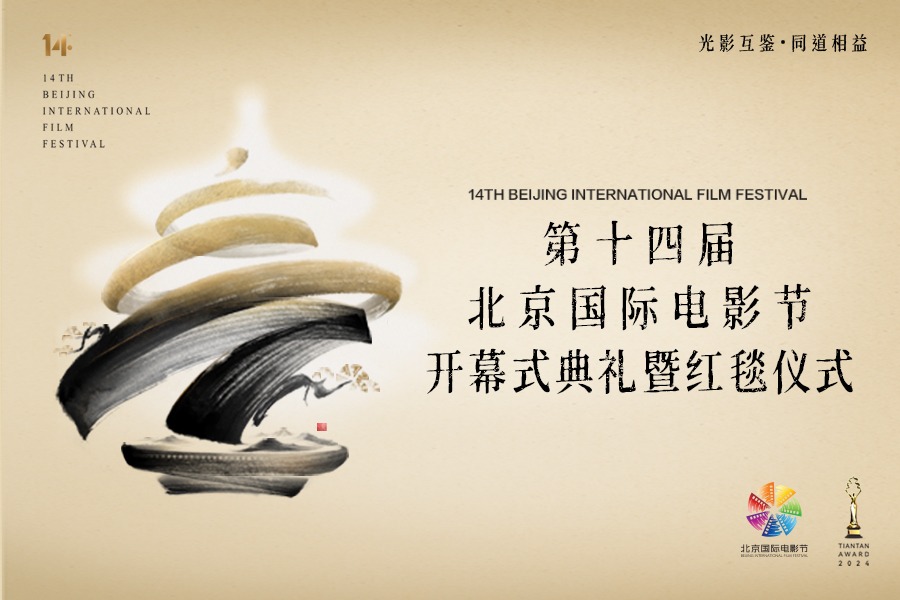Cutthroat China-US competition decried
By ZHAO HUANXIN in Washington | China Daily | Updated: 2021-12-27 07:37

Collaboration and consensus are right elements for progress, envoy points out
China opposes defining Sino-US relations as competitive because such framing overshadows collaboration, and competition now pursued by the United States is unfair and is employed to contain China's development, says China's Ambassador to the US Qin Gang.
In a wide-ranging interview with US media last week, Qin quoted US President Joe Biden's remarks at his first virtual summit with Chinese President Xi Jinping last month in which Biden said he hoped to have a good relationship with China and did not want to "mess up" the relationship.
"But the US is defining the US-China relations as competition," Qin said, according to a transcript of the interview issued by the Chinese embassy in Washington on Friday. "We don't agree, because using competition to define the relations would neglect the cooperation as the mainstream of our relations, while cooperation was the mainstream of the past 40 years."
Continuing to compete with one another raises the risk of confrontation and conflict, Qin said in the interview, conducted by Bloomberg New Economy Forum.
"It's just like a hypertension patient. If his blood pressure keeps rising, it may cause a heart attack or a stroke, which will endanger his life. If a hypertension patient goes to see a doctor, the doctor's first thing to do is to have this pressure lower."
In March the US Secretary of State Antony Blinken described the US relationship with China as "competitive when it should be, collaborative when it can be and adversarial when it must be".
Beijing has noted that such a characterization is a "thinly veiled attempt" to contain and suppress China.
Qin said: "We do agree that there's competition between China and the United States, but the competition is not driven by a zero-sum mentality. 'You lose, I win, or I win, you lose.' It must be fair and healthy."
Governing norms
Being "fair" means both sides need to abide by the norms governing international relations, such as internationally recognized rules, not on one-sided terms.
Competition should not be perceived or presumed as beating the other to the ground, Qin said.
"It's not a modern boxing match. It should be a racing match. Both sides can perform to their best rather than beating the other side to the ground. And both sides can find opportunities for cooperation, make themselves stronger while allowing the other side to grow and develop."
But the current competition is unfair because the US is using competition to contain China's development, Qin said, citing examples of how Chinese companies have been restricted, how the national security concept is being overstretched and abused, and how many Chinese companies are delisted or facing the fate of being delisted.
He expressed worries about what he called cutthroat competition and a "violent attack".
Asked about how China and the US will manage crises on Taiwan to avoid conflict and confrontation, Qin said that preventing crises is preferable to controlling them.
"If both countries do not want a war, but want peace, let's work together to oppose and contain 'Taiwan independence'."
The Democratic Progressive Party in Taiwan denies that there is only one China, he said.
"It is provoking confrontation by seeking US support for its independence agenda, and the US is using Taiwan to contain China. That's how the tension keeps rising.
"We'll do our best for the prospects of peaceful reunification, because we believe peaceful reunification serves the best interests of people on both sides of the Strait. But we will never renounce non-peaceful means, simply because we are facing the threat of 'Taiwan independence' forces, which we need to deter."
The United States says that it does not want a war with China. China calls for peaceful coexistence. Peace or no war is thus the biggest consensus between China and the US, the ambassador noted.
























